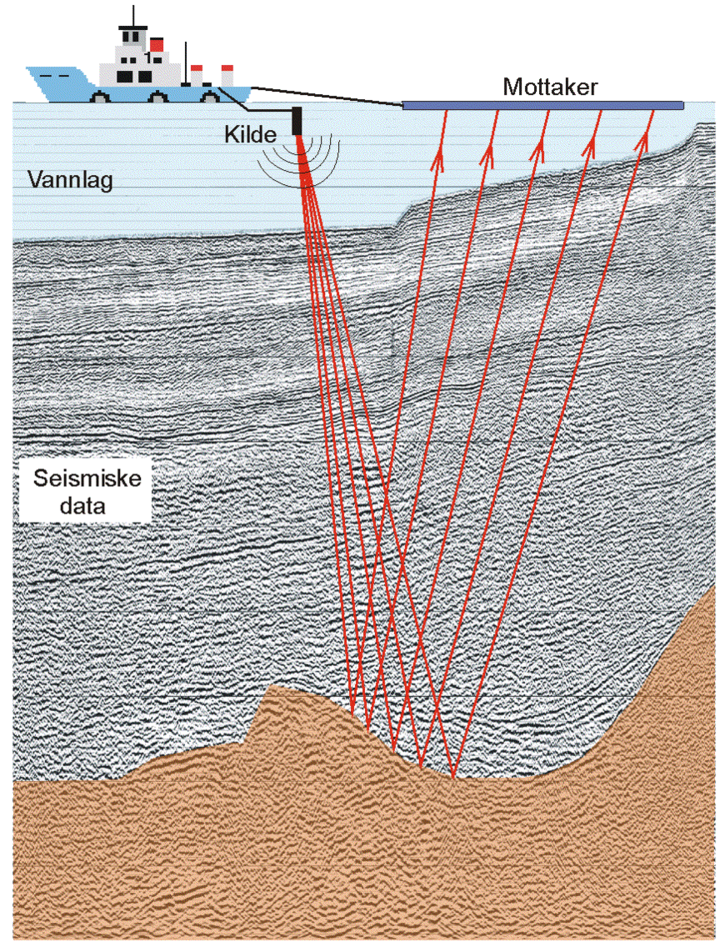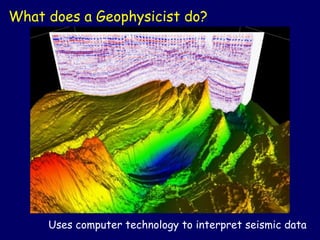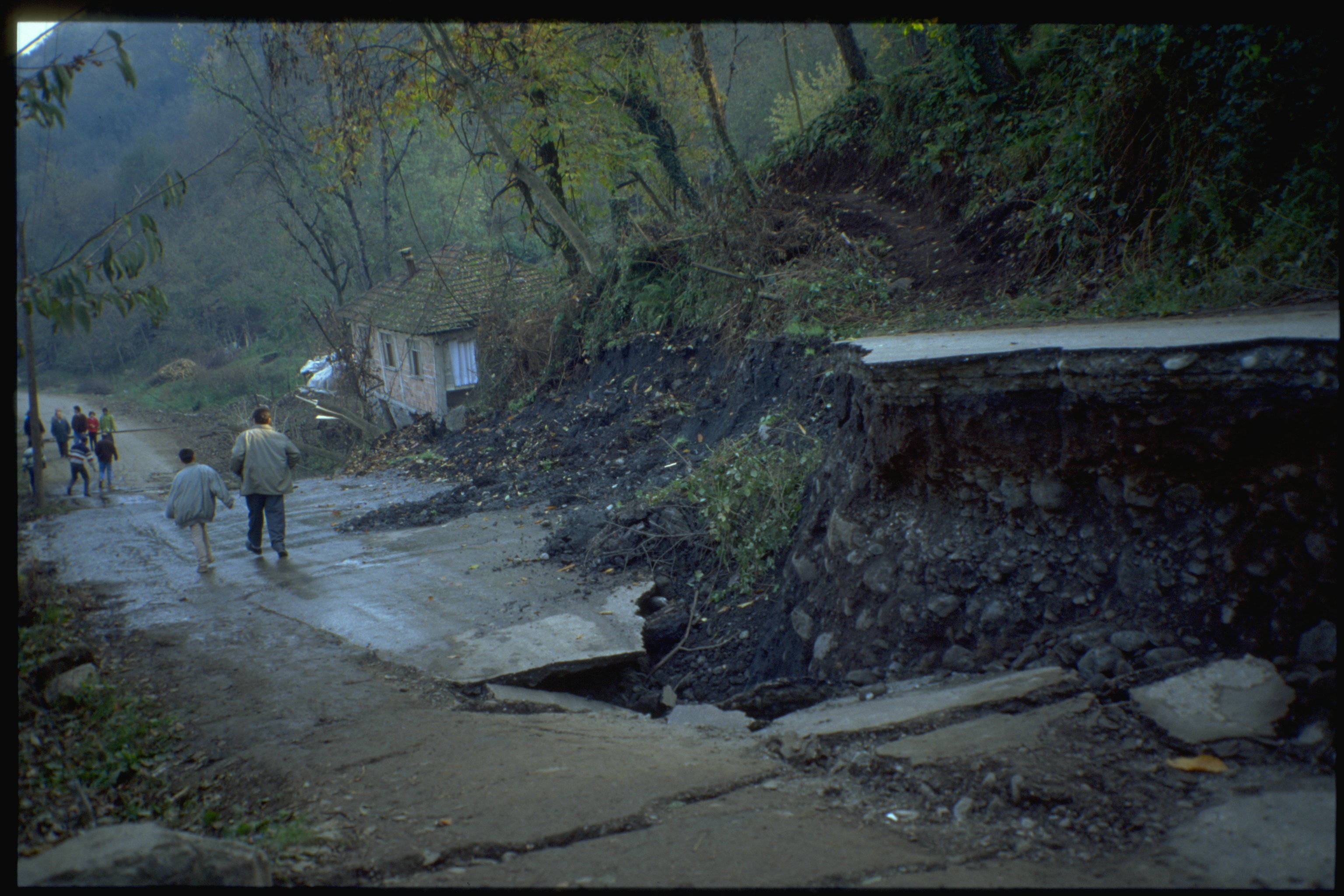All Categories
Featured
Table of Contents
Course: Basics In Geophysical Surveying in Forrestdale Western Australia 2022

Other possible geophysicist majors that aren't geophysics or geoscience include: Atmospheric sciences and meteorology Chemical and physical oceanography Earth science Environmental science Hydrology and water resources science Products science By earning any geophysicist degree, and by taking the necessary geology courses, you should qualify for an entry-level position as a geoscientist or geophysicist.
Ultimately, trainees need to discover: a branch of geology that looks at the different aspects of minerals, including chemical composition, internal crystal structure, and physical homes. the research study of rocks and the processes and conditions that form and change them with time. There are a couple of neighborhoods in this branch of geology, including igneous, metamorphic, and sedimentary rocks.

This field takes a look at structural rock features such as cleavage, faults, joints, and small folds. They must likewise discover the computer system skills necessary to: analyze information develop digital models and maps operate geoscientists' software application Trainees ought to likewise take advantage of all opportunities to gain real-world experience. Aspiring geophysicists should expect to hang around knowing: in the classroom in the field in labs Undoubtedly, skills taught in the classroom are extremely essential for striving geophysicists.
Job Profiles : Geophysicist Physics in Currambine WA 2023
Geoscientists spend a lot of their time outside when working in the field, so they need to have "outside skills" like camping and running boats, aircraft, and other vehicles. Because they invest a lot time in remote places, it's vital that geophysicists also have the physical endurance to carry essential equipment on their hikes to areas of study.
The job uses: a high mean and leading profits a high rate of individual fulfillment among geophysicists low work stress positive task outlook More information on revenues potential and job outlook is detailed listed below. For trainees wanting to land an entry-level function as a geoscientist or geophysicist, it takes four years, or the time needed to complete a bachelor's degree in geophysics or an associated discipline.
Some research positions in geophysics need doctoral degrees. If you prepare to teach at a college or university, you should make a Ph. D. in geophysics or an associated field. The time it requires to earn a Ph. D. differs by institution and program, but it generally takes four to 6 years beyond the bachelor's degree.
Geophysical And Geotechnical Assessment in Kingsley WA 2020
The majority of companies require prospects to have a bachelor's degree in geophysics or a closely related discipline for all entry-level positions. And, in many cases, companies need a master's degree. As an outcome, there's no chance around the degree requirements for ending up being a geophysicist. Most employers will anticipate or require a practicing geologist to be accredited for positions beyond those at the entry level.
Currently, 31 states require licensing for geologists, although licensing is not constantly required, specifically for entry-level work. The states that do concern licenses utilize the Principles of Geology Test (FGE), which is administered through the National Association of State Boards of Geology (ASBOG). Now that you understand which degree for geophysicist tasks you require, you'll require to land a job, and it's crucial to learn just how much money you can make in this career.
According to BLS, the typical annual wage for geoscientists is $93,580. According to BLS, particular industries offer higher earnings for geoscientists, and in some cases, they provide higher-than-average earnings.
Geophysical Surveying And Mapping Services (Geology ... in Willagee Oz 2022
Mining, quarrying, and oil and gas extraction uses over $32,000 more each year than the average yearly wage for this profession. The federal government, too, uses over $10,000 more in incomes than the nationwide average for geoscientists. In addition to industry type, geographic location can considerably impact incomes for this profession.

The top-paying states and their yearly mean wages, according to the BLS, consist of: Texas $166,720 Oklahoma $149,630 Pennsylvania $120,590 Hawaii $120,130 Colorado $107,260 These 5 top-paying states offer much greater earnings than the average for this profession. Earnings for geoscientists in Texas are over $73,000 greater than the nationwide average.
It ought to come as no surprise that many of these high-paying locations remain in Texas and Oklahoma, but some are discovered in California, Louisiana, and Colorado. The leading 10 highest-paying city locations for geoscientists are: Houston-The Woodlands-Sugar Land, Texas: $188,400 Tulsa, Oklahoma: $186,490 Midland, Texas: $167,040 Odessa, Texas: $147,080 Oklahoma City, Oklahoma: $145,350 Bakersfield, California: $130,080 Urban Honolulu, Hawaii: $124,470 New Orleans-Metairie, Louisiana: $121,030 Washington-Arlington-Alexandria, DC, VA, MD, WV: $120,180 Denver-Aurora-Lakewood, Colorado: $116,910 For some geoscientists and geophysicists, residing in a metro city is not as enticing as residing in a smaller neighborhood.
Latest Posts
Geophysicist Job Description in Guildford Aus 2023
Marine Geophysical Surveying - in Maddington Aus 2023
Geophysical Survey - Suffolk Heritage Explorer in Millendon WA 2023